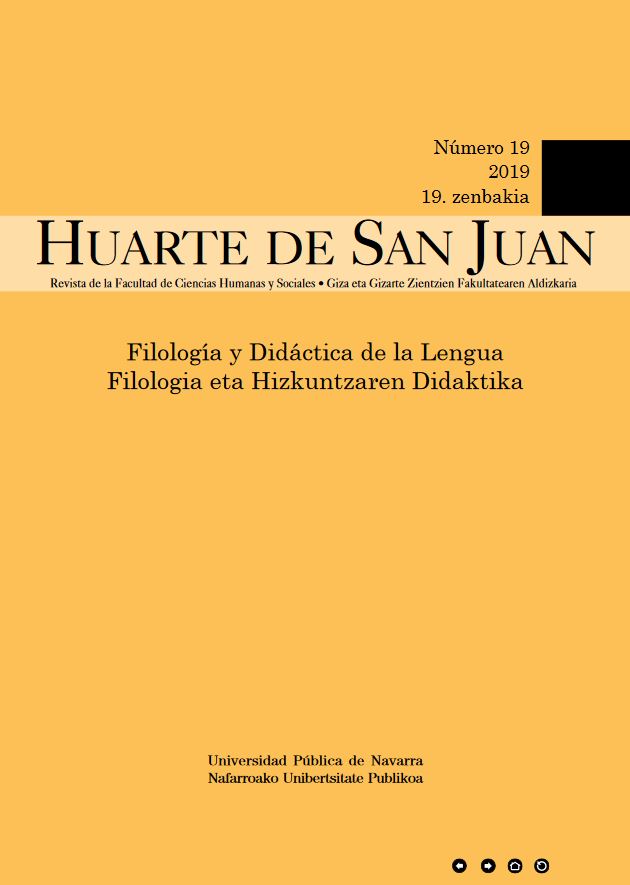Communication accommodation amongst Congolese Facebook users
Keywords:
Computer-mediated communication, Communication accommodation theory, Codeswitching, Netnography, Congo-BrazzavilleAbstract
Facebook is one of the top social media in use worldwide at present. With millions of people around the globe frequently communicating on the social media, investigating users’ interactions and their behaviour on Facebook is a breakthrough in an attempt to gain an understanding of how people behave beyond their traditional face-to-face space. The present study intends to examine patterns of communication accommodation in Facebook interaction amongst Congolese users. Applying communication accommodation theory to analyse a dataset of 262 Facebook updates, the study reveals that, though there is no one-on-one correlation between the incidences of Codeswitching (henceforth CS) in Facebook updates and comments, the two main concepts of communication accommodation theory – namely convergence and divergence – are observed as the main communicative strategies used by Congolese Facebook users.
Downloads
References
Auer, P. (1984a). Bilingual conversation: Pragmatics and Beyond. Parret & Verschueren. — (January 1984b). On the Meaning of Conversational Code-Switching. Interpretive Sociolinguistics, 87-112.
Beebe, L. M., & Giles, H. (1984). Speech accommodation theories: a discussion in second language acquisition. Int’l. J. Soc. Lang. 46, 5-32.
Bourhis, R. Y., Giles, H., Leyens, J. P., & Tajfel, H. (1979). Psycholinguistic Distinctiveness: Language Divergence in Belgium. In H. Giles & R. St-Clair (Eds.), Language and Social Psychology (pp. 158-185). Oxford, UK: Blackwell.
Bowler Jr, G. M. (2010). Netnography: A method specifically designed to study cultures and communities online. The Qualitative Report, 15(5), 1270-1275.
Bukhari, N. I. B., Anuar, A.F., Kazim, M. K., and Aziz, T. M. F. B. T. A. (2015). English-Malay code-mixing innovation in Facebook among Malaysian University students. Researchers World-Journal of Arts, Sciences & commerce, 4(4).
Crystal, D. (2001). Language and Internet. Cambridge: Cambridge University Press.
Dragojevic, M. (2016). Communication Accommodation Theory. The International Encyclopedia of Interpersonal Communication. John Wiley & Sons.
Eldin, A. A. S. (2014). Socio Linguistic Study of Code Switching of the Arabic Language Speakers on Social Networking. International Journal of English Linguistics, 4(6), 1923-8703.
Ellison, N. B., & Boyd, D. (2013). Sociality through Social Network Sites. In W. H. Dutton (Ed.), The Oxford Handbook of Internet Studies (pp 151-172). Oxford: Oxford University Press.
Farzadnia, S., & Giles, H. (2015). Patient-Provider Health Interactions: A Communication Accommodation Theory Perspective. International Journal of society, Culture and Language (IJSCL), 3(2), 17-34.
Gardener-Chloros, P. (2009). Code Switching. Cambridge: Cambridge University Press.
Gasiorek, J., & Giles, H. (2013). Accommodating the interactional dynamics of conflict management. Iranian Journal of Society, Culture, and Language, 1, 10-21.
Georgakopoulou, A. (1997). Self-presentation and interactional alignments in e-mail discourse: the style and code switches of Greek messages. International Journal of Applied Linguistics, 7(2), 141-164.
Giles, H. (2009). Communication Accommodation Theory. In Harry T. Reis & S. Sprecher (Eds.), Sage Encyclopaedia of Human Relationships. Vol. 1 (pp. 265-267). Thousand Oaks, CA: SAGE. doi:10.4135/9781412958479.n89.
Giles, H., & Gasiorek, J. (2012). Parameters of Non-Accommodation: Redefining Elaborating Communication Accommodation Theory. In J. Forgas, J. László & V. Orsolya (Eds.), Social cognition and communication (pp. 155-172). New York: Psychology Press.
Giles, H., Coupland, J., & Coupalnd, N. (1991). Contexts of Accommodation: Developments in Applied Sociolinguistics. England: Cambridge UP.
Giles, H., & Johnson, P. (1987). Ethnolinguistic identity theory: A social psychological approach to language maintenance. International Journal of the Sociology of Language, 68, 69-99. doi: 10.1515/ijsl.1987.68.69.
Giles, H., Dragojevic, M., & Gasiorek, J. (2016b). Communication Accommodation Theory. In C. R. Berger & M. E. Roloff (Eds.), The International Encyclopedia of Interpersonal Communication (pp. 1-20). John Wiley & Sons.
Giles, H., Gallois, C., Gasiorek, J., and Soliz, J. (2016a). Communication Accommodation Theory: Integrations and New Framework Developments. In H. Giles (Ed.), Communication Accommodation Theory: Negotiating Personal Relationships and Social Identities across Contexts (pp. 192-210). Cambridge: Cambridge University Press. doi:10.1017/CBO9781316226537.010
Giles, H., Coupland, J, and Coupland, N. (1991a). Accommodation Theory: Communication, Context, and Consequence. In H. Giles, J. Coupland, and N. Coupland (Eds.), Contexts of Accommodation (pp. 1-68). New York: Cambridge University Press.
Giles, H., & Coupland, N. (1991b). Accommodating Language. In H. Giles, & N. Coupland (Eds.), Language: Contexts and Consequences (pp. 60-99). Great Britain: Open University Press.
Golbarg, R. H. (2009). Spanish-English in email communication. Language @internet, 6, 1-21. Retrieved from http://www.languageatinternet.org/articles/2009/2139 (consulted on August 31st 2017).
Gumperz, J. J. (1982a). Discourse Strategies. Cambridge: Cambridge University Press.
Gumperz, J. J. (1982b). Language and social identity. Cambridge: Cambridge University Press.
Halim, N. S., & Maros, M. (2014). The Functions of Code-switching in Facebook Interactions. In Procedia – Social and Behavioural Sciences, 118, 126-133 (March). Retrieved from https://www.researchgate.net/publication/273850755_The_ Functions_of_Code-switching_in_Facebook_Interactions (consulted on February 17th, 2017).
Herring, S. C., & Dainas, A. R. (2017). «Nice picture comment!» Graphicons in Facebook comment threads. Proceedings of the Fiftieth Hawai’i International Conference on System Sciences (HICSS-50). Los Alamitos, CA: IEEE. Retrieved from http://ella.slis.indiana.edu/~herring/hicss.graphicons.pdf (consulted on August, 30th 2017).
Herring, S. C., Stein, D., & Virtanen, T. (Eds.). (2013). Introduction to the pragmatics of computer-mediated communication. In: Handbook of computer-mediated communication (pp. 1-32). Germany: De Gruyter Mouton.
Hok-Shing Ch, B. (2009). Code-switching between typologically distinct languages. In B. E. Bullock and A. J. Toribio (Eds.), The Cambridge handbook of linguistic code-switching (pp. 182-196). Cambridge: Cambridge University Press.
Huang, D. L. J. (2009). Language use in asynchronous computer-mediated communication in Taiwan. Australian Review of Applied Linguistics, 32(2), 1-12.
Jucker H. J., & Durcheid, C. (2012). The Linguistics of Keyboard-to-screen Communication. A New Terminological Framework. Linguistik online 56(6). Retrieved from http://www.linguistik-online.de/56_12/juckerDuerscheid.html (consulted on September 1st, 2017).
Kounghat, J. (2013). Les attitudes et représentation des populations de Talangai (Mémoire pour l’obtention de la maitrise de linguistique). Faculté des Lettres et des Sciences Humaines. Université Marien Ngouabi de Brazzaville.
Kozinets, R. V. (2002a). The Field Behind the Screen: Using Netnography for Marketing Research in Online Communities, Journal of Marketing Research, 39 (February), 61-72.
Kozinets, R. V. (2002b). Can consumers escape the marked? Emancipatory illuminations from burning man. Journal of Consumer Research, 29(June), 20-38.
Kozinets, R. V. (2010). Netnography: The Marketer‘s Secret Ingredient. MIT Technology Review, October 14. Retrieve from http://www.technologyreview.com/business/26434/.
Kozinets, R. V. (2012). Marketing Netnography: Prom/ot(ulgat)ing a New Research Method. Methodological Innovations Online, 7(1), 37-45.
Kozinets, R. V. (2015a). Netnography: Redefined (2nd Ed.). London: Sage Publications Ltd.
Kozinets, R. V. (2015b). Netnography. In: Robin Mansell and Peng Hwa Ang (Eds.), The International Encyclopedia of Digital Communication and Society (pp. 653–660). Wiley-Blackwell.
Lee, S. A., & Zuercher, R. J. (2017). A current review of doctor–patient computer-mediated communication. Journal of communication and Healthcare. Strategies, Media and Engagement in Global Heath., 10, 22-30. Retrieved from http://www. tandfonline.com/doi/abs/10.1080/17538068.2017.1282184 (consulted on September 1st, 2017).
Leech, G. (2014). The pragmatics of politeness. New York: Oxford University Press.
Maíz-Arévalo, C. (2015). Jocular mockery in Computer-mediated communication: A contrastive study of a Spanish and English Facebook community. Journal of politeness Research, 11(2), 289–327.
Maíz-Arévalo, C. (2017a). Getting «liked». In C. R. Hoffman and Wublitz (Eds.), Pragmatics of Social Media (pp. 575–606). Berlin/Boston: De Gruyter Mouton.
Maíz-Arévalo, C. (2017b). Expressive Speech Acts in Educational e-chats. Emotion and language «at work»: The discursive emotive/evaluative function in different texts and work contexts. January 2017. Pragmática sociocultural/Sociocultural pragmatics 5 (2), pp. 1-28.
Mamono-Ngolo, G. P. (2012). Les Classes nominales du parler ɛtyɛɛ [B73e] (District de Tsiaki, département de la Bouenza, Congo (Mémoire de Maîtrise, s/dir. de Ndamba, J. HDR). Département de Linguistique et Langues Africaines, Faculté des Lettres et Sciences Humaines, Brazzaville.
Myers-Scotton, C. (1993). Social motivations for codeswitching: Evidence from Africa. Oxford: Oxford University Press.
Myers-Scotton, C. (2006). Multiple Voices: An introduction to Bilingualism. Oxford: Blackwell Publishing.
Ndamba, J. (2000). Des Véhiculaires aux vernaculaires à Brazzaville : la ville et les changements de fonctions linguistiques. In Le Plurilinguisme urbain (pp.135– 145), actes du colloque de Libreville, 25-29 septembre 2000. Paris: Institut de la francophonie / Didier Erudition.
Ndamba, J. (2008). Evaluation dialectométrique des langues et dialectes du département du Kouilou. Revue gabonaise des sciences du langue, 4 (July), 75-89.
Ngoko, A. (2013). Les Classes nominales dans le parler ibwiisi du Congo (B45) (Mémoire de Maîtrise, s/dir. de J. Ndamba, HDR). Département de Linguistique et Langues Africaines, Faculté des Lettres et Sciences Humaines, Brazzaville.
Ong’onda, N. A., Ongarora, D., and Oketch, O. (2013). Prosodic features in Facebook Communication. International Journal of Academic Research in Progressive Education and Development, 2(2) (April), 166-180.
Perez-Sabater, C. (2012). The linguistics of Social Networking: A study of writing conversation on Facebook. Linguistik online, 56 (6/12), 83-91.
Poplack, S. (1981). Syntactic structure and social function of code-switching. In R. P. Duran (Ed.), Latino Discourse and Communication Behaviours (pp. 169-184). New Jersey: Ablex Publishing Corporation.
Runciman, W. G. (1998). The Social Animal. Great Britain: Harper Collins Publishers.
Shippey, S. S. (1997). The role of Communication Accommodation in patient recall of Physicians’ Treatment Recommendations. (A thesis In Communication Studies. Submitted to the Graduate Faculty of Texas Tech University in Partial Fulfillment of the Requirements for the Degree of Master of Arts).
Thomas, J. (1995). Meaning in Interaction: An introduction to pragmatics. London/ New York: Longman.
Vătămănescu, E. M. (2010). The Social and Cultural Patterns in the Context of Global Interaction. An Overview on the Communication Accommodation Theory. Preparing the Workforce for the Information Society, CIEA (pp. 281-290). Iaşi: Universităţii «Alexandru Ioan Cuza» Publishing House (CD).
Villi, M., & Matikainen, J. (2016). Participation in Social Media: Studying Explicit and Implicit Forms of Participation in Communicative Social Networks. Media and communication, 4(4), 109-117. doi:10.17645/mac.v4j4.578.
Walther, J. B. (2002). Research ethics in internet-enabled research: Human subjects’ issues and methodological myopia. Ethics and Information Technology, 4, 205–216.
Yus, F. R. (2011). Cyberpragmatics. Internet-mediated Communication in Context. Amsterdam / Philadelphia: John Benjamins.
Zhao, S., Grasmuck, S., & Martin, J. (2008). Identity construction on Facebook: Digital empowerment in anchored relationships. Computers in Human Behaviour, 24(5), 1816-1836.
Downloads
Published
How to Cite
Issue
Section
License
All articles are published under a Creative Commons (BY-NC-ND 4.0) license. Each article will be assigned a DOI.
Authors retain copyright of their work and grant the journal the right to the first publication. Authors can sign additional agreements to non-exclusive distribution of the published version of the article (for example, in an institutional repository) as long as appropriate attribution to the original publication is provided. Articles can be uploaded to institutional repositories immediately after publication.
Electronic distribution of the articles (for example, academic social networks or personal webpages) is allowed and encouraged.
The journal reserves the right to publicise the work in social networks and other electronic means.







